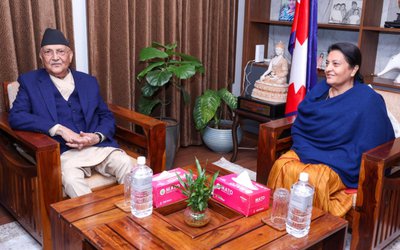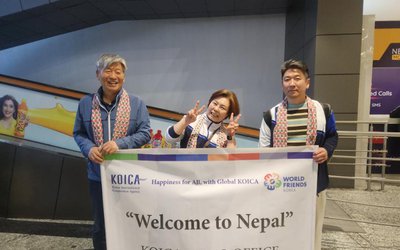The United States has been a friend and partner of Nepal and the Nepali people for nearly 70 years. Together, we continue to focus on strengthening the country’s prospects for peace and prosperity. On this 10th anniversary of the Comprehensive Peace Accord, we commend the people of Nepal for the important milestones that have been achieved – a national dialogue on the role and functions of the state, addressing some important political grievances, adopting a new constitution, and initiating a truth and reconciliation process. While more work still remains toward fully enfranchising all Nepalis to enable them to contribute maximally in government and the economy and realizing a peace dividend, Nepal has made much progress in advancing the tenets of the Peace Accord for which it should be proud.
As Nepal’s democracy develops it shows signs of great potential. Both national elections for the Constituent Assembly were considered open and free, and showed trends of increased voter turnout from 2008 to 2013. A vibrant civil society is taking on a greater role in proposing positive options for moving the country forward while also holding leadership accountable through constructive, critical engagement and oversight. And the people of Nepal understand that a true democracy is one in which they are included in, and represented by, their government. The United States has great faith in Nepal’s democracy. We trust that the constitution will be implemented in an inclusive manner that guarantees rights, freedoms, and equal opportunity for all. Such progress, however, will not just happen. It requires the active engagement of diverse voices, a commitment to a shared vision for a stable and prosperous future, and the maturity to compromise for the benefit of the country. We encourage Nepali leaders to engage in productive and meaningful negotiations to ensure that the aspirations of all Nepalis are addressed.
The convening of representative and participatory Constituent Assemblies, clearing of landmines, and attempts to address problems related to caste and gender discrimination illustrate the commitment of Nepal’s people and political parties to continue to move forward on peace and reconciliation. We recognize the challenges associated with transitional justice, and encourage all parties to ensure that mechanisms to unveil the truth and provide effective remedies to the victims of the conflict meet Nepal’s international and national legal obligations.
The United States’ primary objective in Nepal is to support the ambitions of the Nepali people for a democratic, prosperous, and stable country. We commend the successes realized over the past decade and remain committed to supporting Nepal’s efforts toward sustainable and inclusive development, continued peace and stability.
Excerpts of the statement issued on the ten years of the Comprehensive Peace Accord.



